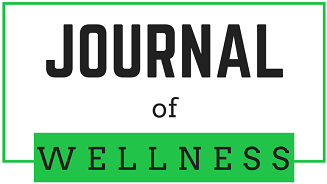
Aims & Scope
Research models of wellness in healthcare recommend optimization of system factors, individual resilience, and promoting a culture of wellness. Recognizing the diversity of valuable scholarly work, we identified the need for a new journal devoted to these topics. JWellness is dedicated to quality research on the wellness of all healthcare professionals and personnel. Support from the University of Louisville Libraries and UofL Department of Emergency Medicine allows us to continue to offer the journal as a completely open access repository of research with absolutely no fees to readers or authors.
Journal of Wellness publishes manuscripts from standard categories: Original Research, Reviews, Editorials, and Humanities. Additionally, we encourage submission of manuscripts describing novel approaches to healthcare worker wellness in the Innovation or Brief Report categories.
Authors are welcomed from a broad range of disciplines, to include (but not limited to): all healthcare disciplines, disaster management, EMS, military, psychology, social work / sociology, humanities, nutrition and fitness. We consider research that uses sound methodology: observational and analytical studies, qualitative research, randomized controlled trials, implementation research and systematic reviews.
The Journal of Wellness welcomes healthcare professionals to submit manuscripts relevant to all (equally important) domains of wellness. Let's collect in one place our experiences, triumphs, and failures. We can work together to enhance our own wellness, ultimately improving the health of our patients.
Please note that the primary editor is on parental leave until October 17th and responses will be delayed. Thank you for you patience.
What The Journal of Wellness Publishes
Wellness is certainly a broad category, and although we consider submissions originating from any of the many fields that comprise wellness, we have included a few example topics below to help guide authors. If you have questions about the applicability of your project for this journal, please contact us.
Contribution Topic Examples (not limited to):
Provider Wellness, Clinician Burnout, High Intensity Exercise & Recovery, Sleep, Stress Mitigation & Stress Inoculation, Spirituality & Medicine, Inspiring Medical Encounters, Physical Recovery, Resiliency, Reduction Pharmacology, Wellness Impacts of Exercise and Nutrition.
Submission Type
We accept several types of submissions: Original Research, Review, Editorial, Humanities, Innovation, and Brief Report. The general breakdown of each type is below.
- Original Research – Brief reports, clinical studies, and original data research are all welcome for submission. Any studies involving people or animals need to have an institutional review board approval documented with the IRB approval number. Clinical trials should be registered (trial number included at the end of the abstract). There is no limitation on article length or number of references. Required sections of the manuscript include: Abstract, Introduction, Methods, Results, Discussion, Conclusion. Abstracts must be structured with the following sub-sections: Introduction, Methods, Results, Conclusion.
- Review – Provides an overview of published literature. No limitation on article length or references. Please include a Methods section detailing how the search was completed, and inclusion criteria of articles. Required sections include: a structured Abstract, Introduction, Methods, Results & Discussion (Results and Discussion can be a single section or separated), Conclusion. Abstracts must be structured with the following sub-sections: Introduction, Objective (optional), Methods, Results, Conclusion.
- Editorial – Within the first paragraph, identify the topic / article the letter is addressing. The letter should delineate both sides of controversy if existent, (both sides however do not require equal treatment). There is no formal limitation on length, but authors are encouraged to keep submission less than 1,000 words if possible. No abstract is required.
- Humanities – Submission can cover anything in the realm of creative writing dealing with wellness (for example, but not limited to: patient encounters, cases of recovery, advocacy for health / wellness). No restriction on length, no restriction on diction, flow or format; poetry and narratives of all types are accepted. No abstract required. No references required, however, any references contained within the work must comply with Vancouver formatting.
- Innovation – Presentation of a new test, method, or process that advances what is currently available. Examples include pilot and quality initiatives. Required sections: Abstract, Introduction, Approach, Discussion, Conclusion. Abstracts must be structured with the following subsections: Introduction, Approach, Discussion.
- Brief Report – A short report of original research data. Generally, this submission type encompasses pilot studies or survey studies which are shorter and have fewer references than Original Research. In this category, JWellness will also consider research involving cohorts other than healthcare professionals. Required sections include: Abstract, Introduction, Methods, Results, Discussion, Conclusion. The Methods section should indicate IRB approval number when applicable for research involving human or animal subjects. Abstracts must be structured with the following subsections: Introduction, Methods, Results, Conclusion.
